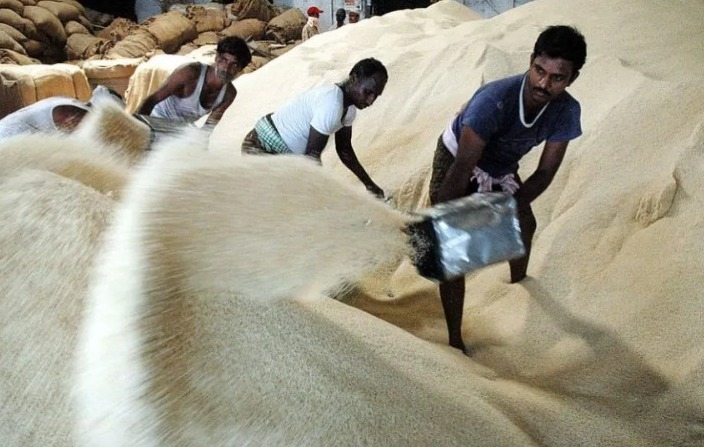
The India tightened its restrictions on the export of rice this Sunday, with limits on the sale abroad of the basmati variety that are added to the total ban on the trade of others of this cereal.
Among the new measures announced by the Ministry of Commerce and Industry is the ban on exporting basmati rice for a price below US$1,200, with the intention of stopping international trade in grain grown in India.
“The government has received credible information about the misclassification and illegal exports of rice of varieties other than basmati, the export of which was banned on July 20, 2023,” the ministry explained.
The minimum price for basmati rice exports comes with the intention of stopping the sale abroad of this cereal, whose export has been prohibited, classified under another category.
India also does not want to send parboiled rice
This week, India imposed a 20% tax on parboiled rice exports, while the sale of broken rice was banned entirely last year.
And it is that, according to official data, rice exports from the Asian country have grown despite the limitations, with 7.3 million metric tons so far this year compared to 6.7 in the same period of 2022.
India is the world’s leading rice exporter. In 2022 alone, the Asian country sold 22.3 million tons of this cereal abroad for some US$11.1 million, mostly from rice varieties other than basmati.
A rise in international prices caused by lower production in countries like Thailand has contributed to skyrocketing rice prices on world markets, with the highest prices since 2011, according to the FAO.
India prioritizes rice for domestic market
India unexpectedly imposed a ban on non-basmati rice exports to “control domestic prices and ensure domestic food security.”
The Reserve Bank of India (RBI, issuing entity) pointed out in early August that the rise in food prices – with some products, such as tomatoes, which increased their price by more than 300% compared to their usual cost in recent weeks – is mainly responsible for the increase in inflation to 4.8% in June.
India’s export ban has caused fears of rising global inflation, and voices like International Monetary Fund (IMF) Research Director Pierre-Olivier Gourinchas have called on New Delhi to end the ban.
Source: Larepublica
Alia is a professional author and journalist, working at 247 news agency. She writes on various topics from economy news to general interest pieces, providing readers with relevant and informative content. With years of experience, she brings a unique perspective and in-depth analysis to her work.












